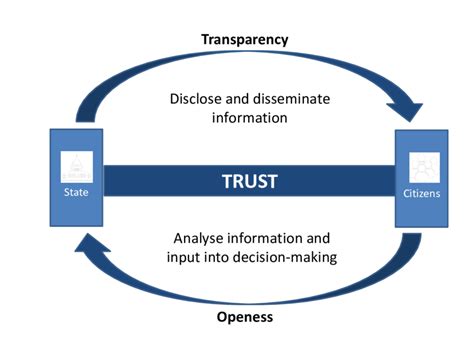
A seemingly harmless and increasingly popular eating pattern known as “clean eating” or “wellness culture” can mask underlying eating disorders, nutritionists are warning. Experts suggest that what starts as a desire to improve health can quickly spiral into an obsession with food purity, leading to restrictive diets and potentially harmful consequences for both physical and mental well-being.
The Allure and the Undercurrent: How “Clean Eating” Can Blur Lines
The clean eating movement, characterized by a focus on whole, unprocessed foods and the avoidance of perceived “unhealthy” ingredients, has gained significant traction in recent years. Fueled by social media influencers and a growing interest in health and wellness, this trend often promotes diets that eliminate entire food groups, such as gluten, dairy, or sugar. While advocating for mindful consumption and prioritizing nutritious foods is generally positive, experts caution that the rigid rules and restrictive nature of clean eating can easily morph into orthorexia nervosa, an eating disorder characterized by an obsession with “pure” or “healthy” eating.
“What might begin as a desire to eat healthier can easily turn into an unhealthy obsession,” says experts. The line between healthy eating and disordered eating becomes blurred when individuals become overly concerned with the perceived purity of their food, leading to anxiety, guilt, and social isolation. The constant pursuit of “perfect” nutrition can also result in nutritional deficiencies and other health problems.
Orthorexia Nervosa: The Hidden Danger
Orthorexia nervosa, unlike anorexia or bulimia, doesn’t primarily focus on weight loss. Instead, it centers on the quality and purity of food. Individuals with orthorexia may spend excessive amounts of time researching, planning, and preparing meals, meticulously scrutinizing ingredients and nutritional labels. They may also experience intense distress if they deviate from their self-imposed dietary rules.
“Orthorexia is an obsession with eating foods that one considers healthy,” explains experts. This obsession can lead to a highly restrictive diet, which may eliminate essential nutrients and result in malnutrition. It can also negatively impact social life, as individuals may avoid eating out or attending social gatherings where they cannot control the food being served. The constant preoccupation with food can also lead to anxiety, depression, and other mental health issues.
The Role of Social Media and Influencers
Social media plays a significant role in the spread of clean eating trends and the normalization of restrictive diets. Influencers often promote specific diets and products, presenting them as the key to achieving optimal health and well-being. While some influencers may have genuine intentions, their advice is not always based on scientific evidence or professional expertise.
The constant exposure to images of “perfect” bodies and meticulously curated meals can create unrealistic expectations and contribute to feelings of inadequacy. Individuals may feel pressured to conform to these ideals, leading them to adopt restrictive diets and engage in other unhealthy behaviors. Moreover, the lack of regulation and oversight on social media means that misinformation and unsubstantiated claims can easily spread, further exacerbating the problem.
Identifying the Warning Signs
Recognizing the warning signs of disordered eating is crucial for early intervention and prevention. Some common indicators include:
- Excessive concern with food quality and purity: Spending an inordinate amount of time researching, planning, and preparing meals based on perceived health benefits.
- Rigid dietary rules and restrictions: Eliminating entire food groups or following strict guidelines about what can and cannot be eaten.
- Anxiety and guilt associated with food: Experiencing distress or shame when deviating from self-imposed dietary rules.
- Social isolation: Avoiding social situations or gatherings where food is involved.
- Compulsive behaviors: Engaging in rituals or routines related to food preparation and consumption.
- Negative self-image: Basing self-worth on adherence to dietary rules and achieving a perceived ideal body image.
- Physical symptoms: Experiencing fatigue, weakness, digestive problems, or other health issues related to nutritional deficiencies.
- Increased criticism of others’ eating habits: Judging or criticizing the food choices of others based on one’s own dietary beliefs.
- Obsessive focus on weight or body shape: Although orthorexia is not primarily focused on weight loss, some individuals may also exhibit concerns about their weight or body shape.
- Denial or minimization of problems: Refusing to acknowledge that one’s eating habits are problematic or unhealthy.
If you or someone you know is exhibiting these warning signs, it’s important to seek professional help from a registered dietitian, therapist, or other qualified healthcare provider.
The Importance of Balanced Nutrition and a Healthy Relationship with Food
Experts emphasize the importance of adopting a balanced and sustainable approach to nutrition that focuses on overall well-being rather than restrictive diets and food rules. A healthy relationship with food involves:
- Eating a variety of foods from all food groups: Including fruits, vegetables, whole grains, lean protein, and healthy fats.
- Listening to your body’s hunger and fullness cues: Eating when you’re hungry and stopping when you’re satisfied.
- Avoiding restrictive diets and food rules: Allowing yourself to enjoy all foods in moderation.
- Practicing mindful eating: Paying attention to the taste, texture, and aroma of food.
- Challenging negative thoughts and beliefs about food: Replacing judgmental thoughts with more positive and accepting ones.
- Focusing on overall health and well-being: Rather than solely focusing on weight or body shape.
- Seeking professional help if needed: Consulting with a registered dietitian or therapist if you’re struggling with your relationship with food.
- Enjoying meals with others: Sharing food and connecting with loved ones.
- Allowing for occasional indulgences: Not feeling guilty about enjoying treats or less-healthy foods from time to time.
- Celebrating cultural and family food traditions: Embracing the role that food plays in our lives.
Moving Beyond Diet Culture: A Call for Body Positivity and Inclusivity
The clean eating trend is often intertwined with diet culture, which promotes unrealistic beauty standards and perpetuates the idea that thinness equals health and happiness. Diet culture can be harmful because it:
- Fuels body dissatisfaction: Constantly bombarding individuals with images of “perfect” bodies.
- Promotes restrictive diets: Encouraging people to eliminate entire food groups or follow strict dietary rules.
- Creates anxiety and guilt around food: Making people feel bad about their food choices.
- Leads to disordered eating: Increasing the risk of developing eating disorders like anorexia, bulimia, and orthorexia.
- Perpetuates weight stigma: Discriminating against people based on their weight or body size.
- Undermines self-esteem: Making people feel inadequate or unworthy if they don’t conform to societal beauty standards.
- Ignores individual differences: Failing to recognize that people have different body types, metabolisms, and nutritional needs.
- Creates a sense of competition: Encouraging people to compare themselves to others.
- Promotes unrealistic expectations: Setting unattainable goals for weight loss and body transformation.
- Hinders overall well-being: Negatively impacting mental and physical health.
To counter the harmful effects of diet culture, it’s important to embrace body positivity and inclusivity. Body positivity is a movement that promotes acceptance and appreciation of all bodies, regardless of size, shape, or ability. It encourages individuals to:
- Challenge societal beauty standards: Questioning the idea that there is only one “right” way to look.
- Reject diet culture: Refusing to participate in restrictive diets or engage in other unhealthy behaviors.
- Practice self-compassion: Treating yourself with kindness and understanding.
- Focus on health and well-being: Rather than solely focusing on appearance.
- Celebrate diversity: Appreciating the beauty of different body types and abilities.
- Advocate for inclusivity: Working to create a more welcoming and accepting society for all.
- Embrace self-care: Prioritizing activities that promote physical, mental, and emotional well-being.
- Surround yourself with positive influences: Connecting with people who support and uplift you.
- Learn to love your body: Accepting and appreciating your body for all that it does.
- Challenge negative thoughts and beliefs: Replacing self-critical thoughts with more positive and affirming ones.
By embracing body positivity and inclusivity, we can create a more supportive and accepting environment for everyone, where individuals feel empowered to prioritize their health and well-being without feeling pressured to conform to unrealistic beauty standards.
The Role of Education and Awareness
Raising awareness about the potential risks of clean eating and the importance of a balanced approach to nutrition is crucial for preventing disordered eating. This can be achieved through:
- Educational campaigns: Providing accurate information about healthy eating and the dangers of restrictive diets.
- Social media literacy: Teaching people how to critically evaluate information on social media and identify misinformation.
- Parent education: Educating parents about the importance of promoting a healthy relationship with food in their children.
- School-based programs: Implementing programs that teach children about nutrition, body image, and self-esteem.
- Healthcare provider training: Training healthcare providers to recognize and address disordered eating.
- Media advocacy: Encouraging the media to promote realistic and diverse representations of bodies.
- Community outreach: Engaging with communities to provide education and resources.
- Public service announcements: Creating public service announcements that raise awareness about disordered eating.
- Online resources: Providing access to reliable information and support online.
- Collaborative efforts: Working with schools, healthcare providers, community organizations, and the media to promote healthy eating and body image.
By increasing awareness and promoting education, we can empower individuals to make informed choices about their health and well-being and reduce the prevalence of disordered eating.
Seeking Professional Help: A Sign of Strength
If you are struggling with your relationship with food or suspect that you may have an eating disorder, seeking professional help is a sign of strength, not weakness. A registered dietitian, therapist, or other qualified healthcare provider can provide you with the support and guidance you need to recover. Treatment options may include:
- Nutritional counseling: Working with a registered dietitian to develop a balanced and sustainable eating plan.
- Therapy: Addressing underlying psychological issues that may be contributing to disordered eating.
- Cognitive behavioral therapy (CBT): Identifying and changing negative thoughts and behaviors related to food and body image.
- Family therapy: Involving family members in the treatment process to improve communication and support.
- Medication: In some cases, medication may be used to treat underlying mental health conditions such as anxiety or depression.
- Support groups: Connecting with others who are struggling with similar issues.
- Inpatient or outpatient treatment: Depending on the severity of the eating disorder, treatment may be provided in an inpatient or outpatient setting.
- Medical monitoring: Regular monitoring of physical health to address any medical complications related to the eating disorder.
- Relapse prevention: Developing strategies to prevent relapse and maintain recovery.
- Self-care practices: Engaging in activities that promote physical, mental, and emotional well-being.
Recovery from an eating disorder is possible with the right support and treatment. Remember that you are not alone and that help is available.
The Path Forward: A Collective Responsibility
Addressing the potential dangers of clean eating and promoting a healthy relationship with food requires a collective effort from individuals, families, communities, healthcare providers, the media, and policymakers. By working together, we can create a more supportive and accepting environment where everyone feels empowered to prioritize their health and well-being without feeling pressured to conform to unrealistic beauty standards or engage in restrictive diets. This involves:
- Promoting balanced nutrition: Emphasizing the importance of eating a variety of foods from all food groups.
- Challenging diet culture: Questioning the idea that thinness equals health and happiness.
- Embracing body positivity and inclusivity: Promoting acceptance and appreciation of all bodies.
- Raising awareness about disordered eating: Educating people about the warning signs and risks.
- Providing access to treatment: Ensuring that everyone has access to affordable and effective treatment for eating disorders.
- Supporting research: Investing in research to better understand the causes and treatment of eating disorders.
- Advocating for policy changes: Implementing policies that promote healthy eating and body image.
- Creating a culture of support: Fostering a supportive and accepting environment where individuals feel comfortable seeking help.
- Empowering individuals: Providing individuals with the knowledge and tools they need to make informed choices about their health and well-being.
- Working together: Collaborating across sectors to address the complex issue of disordered eating.
By taking these steps, we can create a healthier and more equitable society where everyone has the opportunity to thrive.
FAQ: Clean Eating and Disordered Eating
1. What is “clean eating” and why is it so popular?
Clean eating is a dietary trend that emphasizes consuming whole, unprocessed foods while avoiding ingredients perceived as unhealthy, such as processed foods, refined sugars, and artificial additives. Its popularity stems from a growing interest in health and wellness, fueled by social media influencers and the desire for a “natural” and “pure” lifestyle. This often involves eliminating entire food groups like gluten or dairy, promising improved health, weight loss, and increased energy. The appeal lies in its simplicity and the promise of achieving a better version of oneself through diet.
2. How can “clean eating” become an eating disorder?
While initially intended as a healthy lifestyle choice, clean eating can become an eating disorder, specifically orthorexia nervosa, when the focus shifts from general well-being to an obsessive preoccupation with the purity and quality of food. This obsession can lead to rigid dietary rules, extreme restrictions, and significant anxiety if these rules are broken. The individual’s life may revolve around planning, preparing, and consuming only “clean” foods, leading to social isolation, nutritional deficiencies, and psychological distress. The line blurs when the pursuit of health becomes detrimental to both physical and mental well-being.
3. What is orthorexia nervosa, and how is it different from anorexia or bulimia?
Orthorexia nervosa is an eating disorder characterized by an obsession with eating foods that one considers healthy or “pure.” Unlike anorexia nervosa and bulimia nervosa, which primarily focus on quantity and weight, orthorexia centers on the quality of food. Individuals with orthorexia may spend excessive time researching ingredients, meticulously planning meals, and feeling intense anxiety or guilt when they deviate from their self-imposed dietary rules. While weight loss can occur as a result of the restrictive diet, the primary motivation is not weight control but rather the pursuit of “perfect” health through food.
4. What are the warning signs that someone’s “clean eating” habits are becoming unhealthy?
Several warning signs indicate that clean eating habits are becoming unhealthy. These include:
- An excessive concern with food quality and purity, spending inordinate amounts of time researching and planning meals.
- Rigid dietary rules and restrictions, eliminating entire food groups or following strict guidelines.
- Anxiety and guilt associated with food, experiencing distress when deviating from self-imposed rules.
- Social isolation, avoiding social situations involving food.
- Compulsive behaviors related to food preparation and consumption.
- Negative self-image based on adherence to dietary rules.
- Physical symptoms like fatigue, weakness, or digestive problems due to nutritional deficiencies.
- Increased criticism of others’ eating habits.
- An obsessive focus on weight or body shape, even if not the primary concern.
- Denial that one’s eating habits are problematic.
If these signs are present, seeking professional help is essential.
5. What should I do if I think I or someone I know has developed an unhealthy obsession with “clean eating”?
If you suspect that you or someone you know has developed an unhealthy obsession with clean eating, the first step is to acknowledge the problem and seek professional help. Consult a registered dietitian, therapist, or other qualified healthcare provider specializing in eating disorders. They can assess the situation, provide guidance, and develop a treatment plan tailored to individual needs. Treatment may include nutritional counseling to re-establish a balanced diet, therapy to address underlying psychological issues, and strategies for managing anxiety and breaking free from restrictive eating patterns. Early intervention is crucial for preventing long-term health consequences and promoting recovery.
6. How does social media contribute to the problem of “clean eating” turning into disordered eating?
Social media significantly contributes to the problem by promoting unrealistic beauty standards and perpetuating the idea that restrictive diets are the key to health and happiness. Influencers often showcase meticulously curated meals and idealized bodies, creating pressure for individuals to conform to these unattainable ideals. The lack of regulation on social media allows misinformation about nutrition and diet to spread rapidly, encouraging people to adopt restrictive eating habits without proper guidance. The constant exposure to these images and messages can fuel body dissatisfaction and increase the risk of developing orthorexia or other eating disorders.
7. Is it possible to practice “clean eating” in a healthy way? If so, how?
Yes, it is possible to practice “clean eating” in a healthy way by focusing on moderation, balance, and mindful eating rather than strict rules and restrictions. The key is to prioritize whole, unprocessed foods while allowing for occasional indulgences and avoiding the elimination of entire food groups without medical necessity. Healthy clean eating involves listening to your body’s hunger and fullness cues, enjoying a variety of foods from all food groups, and focusing on overall well-being rather than solely on weight or body shape. It’s also important to be critical of information found online and consult with a registered dietitian for personalized guidance.
8. What are the long-term health consequences of orthorexia nervosa?
The long-term health consequences of orthorexia nervosa can be significant and include:
- Nutritional deficiencies: Restrictive diets can lead to deficiencies in essential vitamins, minerals, and macronutrients, affecting overall health and well-being.
- Metabolic imbalances: Prolonged dietary restrictions can disrupt metabolism and lead to hormonal imbalances.
- Gastrointestinal problems: Irregular eating patterns and limited food choices can cause digestive issues such as bloating, constipation, and irritable bowel syndrome (IBS).
- Weakened immune system: Nutritional deficiencies can compromise the immune system, making individuals more susceptible to infections.
- Cardiovascular problems: In severe cases, malnutrition can affect heart function and increase the risk of cardiovascular disease.
- Bone loss: Inadequate calcium and vitamin D intake can lead to osteoporosis and increased risk of fractures.
- Psychological distress: Orthorexia can cause anxiety, depression, social isolation, and a decreased quality of life.
- Impaired cognitive function: Nutritional deficiencies can affect brain function and lead to cognitive impairment.
- Kidney problems: Extreme dietary restrictions can sometimes strain the kidneys.
9. How can parents help prevent their children from developing an unhealthy relationship with food?
Parents play a crucial role in shaping their children’s relationship with food. They can help prevent unhealthy eating habits by:
- Promoting a balanced diet: Offering a variety of nutritious foods from all food groups without labeling foods as “good” or “bad.”
- Encouraging mindful eating: Teaching children to listen to their hunger and fullness cues and to eat without distractions.
- Avoiding restrictive diets: Refraining from putting children on restrictive diets unless medically necessary.
- Modeling healthy eating habits: Demonstrating a positive and balanced approach to food.
- Promoting body positivity: Encouraging children to accept and appreciate their bodies regardless of size or shape.
- Limiting exposure to diet culture: Reducing children’s exposure to media that promotes unrealistic beauty standards and restrictive diets.
- Encouraging open communication: Creating a safe space for children to talk about their feelings and concerns about food and body image.
- Seeking professional help: If concerned about a child’s eating habits or body image, consulting a registered dietitian or therapist.
10. What resources are available for people struggling with eating disorders or unhealthy relationships with food?
Numerous resources are available for people struggling with eating disorders or unhealthy relationships with food, including:
- National Eating Disorders Association (NEDA): NEDA offers a helpline, website, and online resources providing information, support, and treatment referrals.
- National Association of Anorexia Nervosa and Associated Disorders (ANAD): ANAD provides support, education, and advocacy for individuals and families affected by eating disorders.
- Academy of Nutrition and Dietetics: The Academy’s website has a “Find a Registered Dietitian” tool to locate qualified nutrition professionals in your area.
- The Emily Program: The Emily Program offers comprehensive eating disorder treatment, including residential, outpatient, and virtual care.
- Project HEAL: Project HEAL provides treatment grants for individuals with eating disorders who cannot afford care.
- Local therapists and counselors: Many therapists and counselors specialize in treating eating disorders and body image issues.
- Support groups: Support groups provide a safe space for individuals to connect with others who are struggling with similar issues.
Seeking help is a sign of strength, and these resources can provide valuable support and guidance on the path to recovery.









